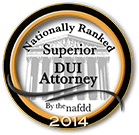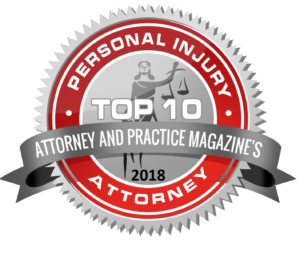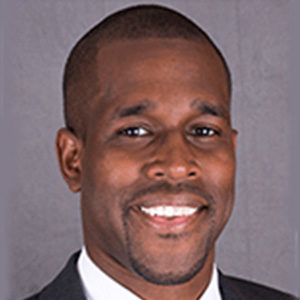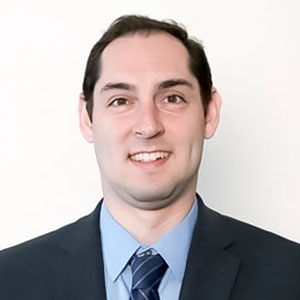Losing a loved one due to someone else’s negligence or wrongful actions is an incredibly painful experience. When such a tragedy occurs, the surviving family members may have the option to pursue a wrongful death lawsuit to seek justice and compensation. In Virginia, the process of a wrongful death lawsuit trial can be complex and emotionally challenging, but it is essential to understand what to expect during this process to be adequately prepared.

Pre-Trial Preparations and Filing the Lawsuit
The first step in pursuing a wrongful death lawsuit in Virginia involves filing a complaint with the appropriate court. This complaint outlines the allegations against the defendant and provides a legal basis for the lawsuit. The plaintiff, usually a representative of the deceased’s estate or a close family member, must gather evidence to support their claims. This evidence may include medical records, witness statements, testimony, and any other relevant documentation.
Once the complaint is filed, the defendant will be served with the legal papers, notifying them of the lawsuit. The defendant then has the opportunity to respond to the allegations. This response, known as an answer, may admit, deny, or provide alternative explanations for the claims made by the plaintiff.
During the pre-trial phase, both parties engage in a process called discovery. This process involves the exchange of information and evidence between the plaintiff and defendant. Discovery can include written interrogatories, requests for documents, and depositions. Depositions are sworn statements taken from witnesses and parties involved in the case. This phase allows both sides to gather information and build their respective cases.
Selecting a Jury and Opening Statements
Once the discovery phase is complete, the case proceeds to trial. The first step in the trial process is selecting a jury. Jury selection involves questioning potential jurors to determine their suitability for the case. Both the plaintiff’s and defendant’s attorneys have the opportunity to ask questions and challenge jurors for cause or through peremptory challenges. The goal is to select a fair and impartial jury that can objectively evaluate the evidence presented during the trial.
After the jury is selected, the trial begins with opening statements from both sides. The plaintiff’s attorney presents an overview of the case, outlining the evidence that will be presented and explaining why the defendant should be held liable for the wrongful death. The defendant’s attorney follows with their opening statement, providing their perspective on the case and outlining the evidence they will present in defense of their client.
Presentation of Evidence and Witness Testimonies
The presentation of evidence is a critical phase of the trial. The plaintiff’s attorney presents their case first, calling witnesses and introducing evidence to support their claims. Witnesses may include medical professionals, accident reconstruction specialists, family members, and other individuals with relevant knowledge. The purpose of these testimonies is to establish the defendant’s liability and the extent of the damages suffered by the plaintiff.
After the plaintiff’s case is presented, the defendant’s attorney has the opportunity to cross-examine the witnesses. Cross-examination allows the defense to challenge the credibility of the witnesses and the validity of the evidence presented by the plaintiff. This phase is crucial in highlighting any weaknesses in the plaintiff’s case and presenting alternative interpretations of the facts.
Once the plaintiff’s side rests, the defendant’s attorney presents their case. The defendant may call their own witnesses and introduce evidence to refute the plaintiff’s claims. This may include testimonies, character witnesses, and other relevant evidence. The plaintiff’s attorney then has the opportunity to cross-examine the defense witnesses.
Closing Arguments and Jury Deliberation
After all the evidence has been presented, both sides make closing arguments. The plaintiff’s attorney summarizes the evidence and emphasizes the reasons why the jury should find in favor of the plaintiff. The defense attorney then provides their closing argument, reiterating their key points and arguing why the jury should side with the defendant. Closing arguments are a final opportunity for each side to persuade the jury before deliberation begins.
The judge then provides the jury with instructions, explaining the legal standards that must be met to find the defendant liable for wrongful death. The jury is instructed on the burden of proof, which in a wrongful death case is a preponderance of the evidence. This means that the jury must find it more likely than not that the defendant’s actions caused the wrongful death.
Jury deliberation is the process where the jurors discuss the case in private and reach a verdict. The jury must consider all the evidence presented and apply the legal standards provided by the judge. Deliberations can vary in length, depending on the complexity of the case and the jury’s ability to reach a consensus. In Virginia, a unanimous verdict is typically required in civil cases, including wrongful death lawsuits.
Verdict and Post-Trial Motions
Once the jury reaches a verdict, it is presented in open court. The jury will determine whether the defendant is liable for the wrongful death and, if so, the amount of damages to be awarded to the plaintiff. Damages may include compensation for medical expenses, funeral costs, lost wages, pain and suffering, and loss of companionship.
Following the verdict, either party may file post-trial motions. These motions may request the court to alter the judgment, order a new trial, or enter a judgment notwithstanding the verdict. The court will review these motions and decide whether to grant or deny them.
Choosing a Personal Injury Attorney Personal Injury Case TimelineRelated Videos
The Importance of Legal Representation
Navigating a wrongful death lawsuit trial in Virginia requires a deep understanding of the legal process and the ability to present a compelling case. The complexities involved, from pre-trial preparations to jury deliberation, underscore the importance of having experienced legal representation. An attorney can help gather crucial evidence, present persuasive arguments, and advocate for the rights of the surviving family members.
In the midst of grief, the legal aspects of a wrongful death case can be overwhelming. Having a knowledgeable legal team can provide invaluable support and guidance, ensuring that the case is handled with the utmost care and professionalism. This is where NovaLegalGroup, P.C. can make a significant difference.
At NovaLegalGroup, P.C., we understand the profound impact that the loss of a loved one can have on a family. Our compassionate and dedicated legal team is committed to providing the support and representation you need during this challenging time. We have extensive experience handling wrongful death cases in Virginia and are here to help you navigate the legal process with sensitivity and experience.
Contact Us Today
If you are facing the devastating loss of a loved one due to someone else’s negligence or wrongful actions, we encourage you to contact NovaLegalGroup, P.C. Our attorneys will work tirelessly to seek justice and secure the compensation you deserve. Let us be your advocates in this difficult time. Reach out to us today to schedule a consultation and learn how we can assist you in your wrongful death lawsuit.










